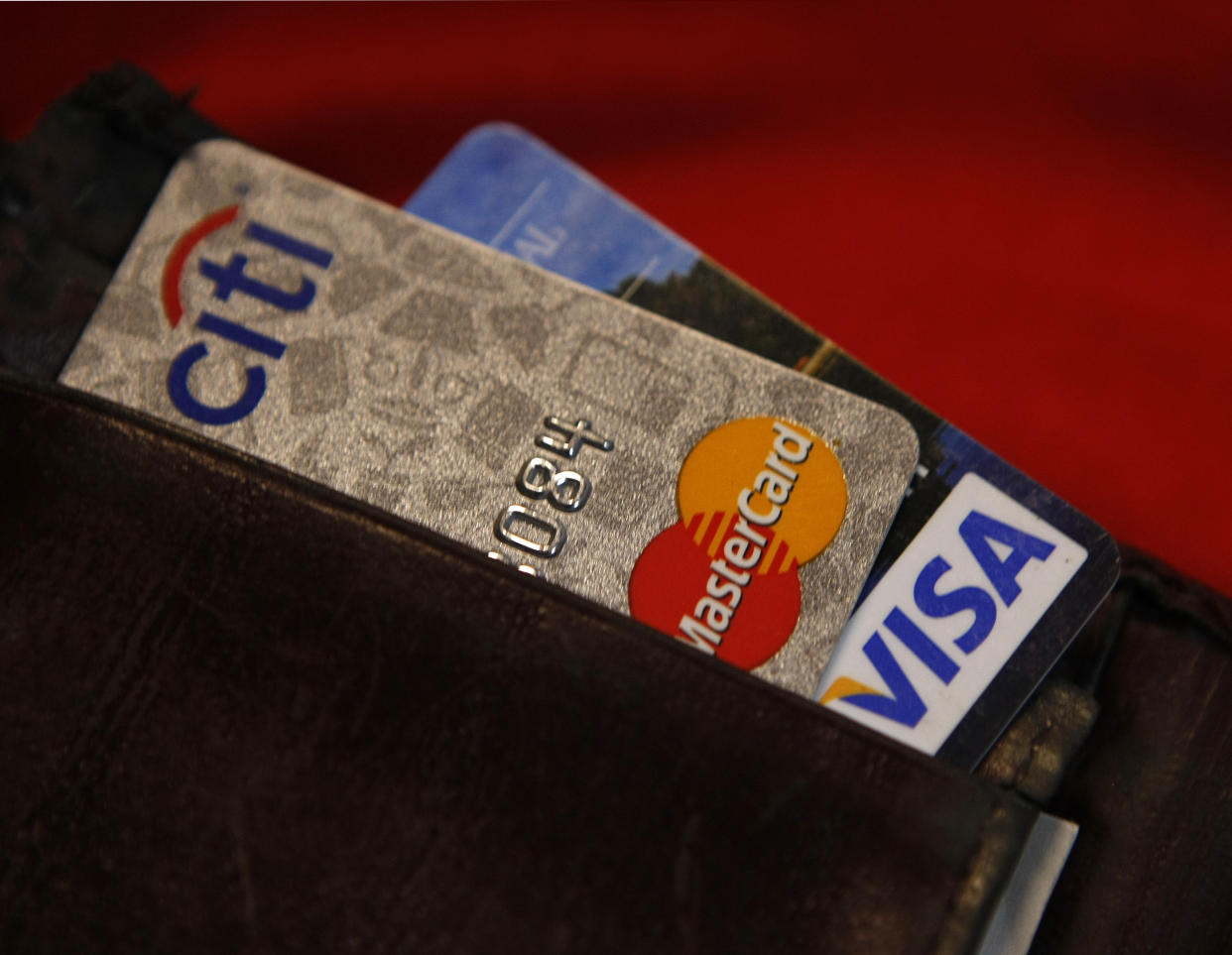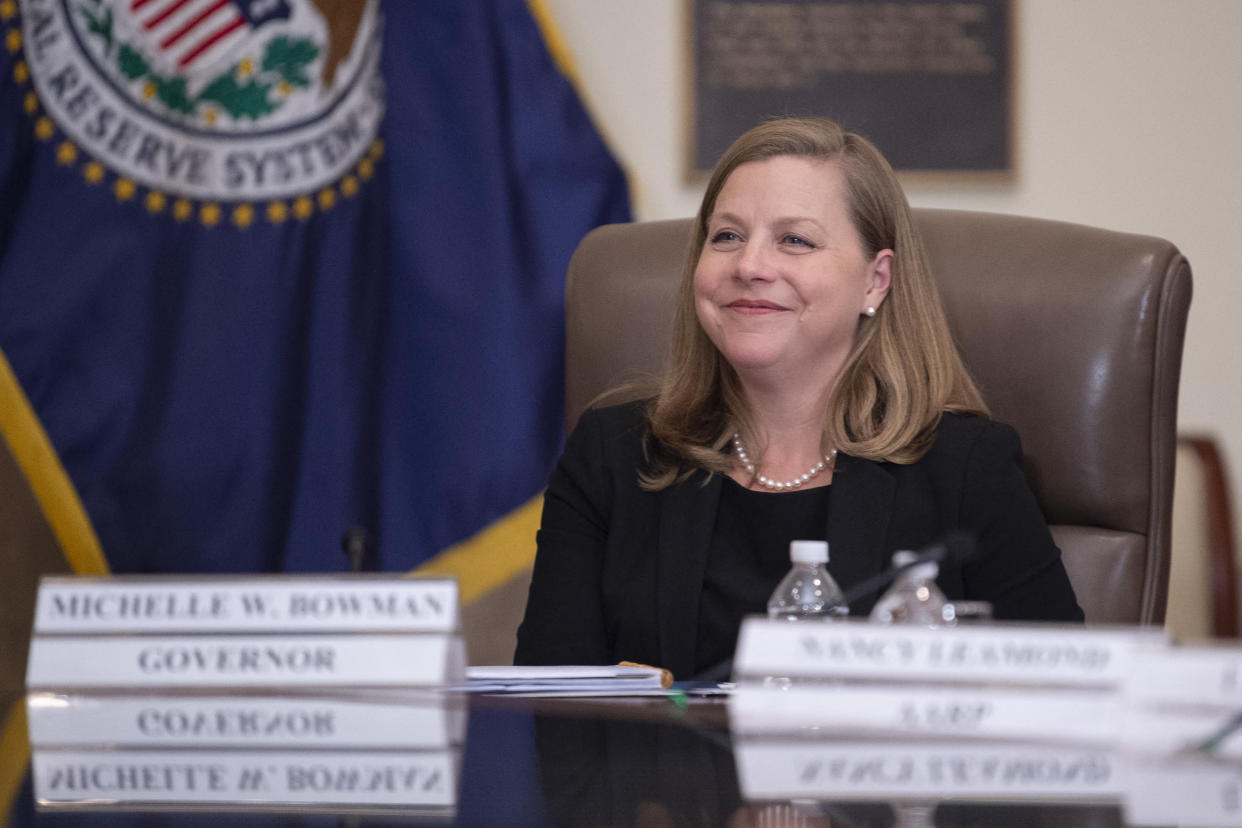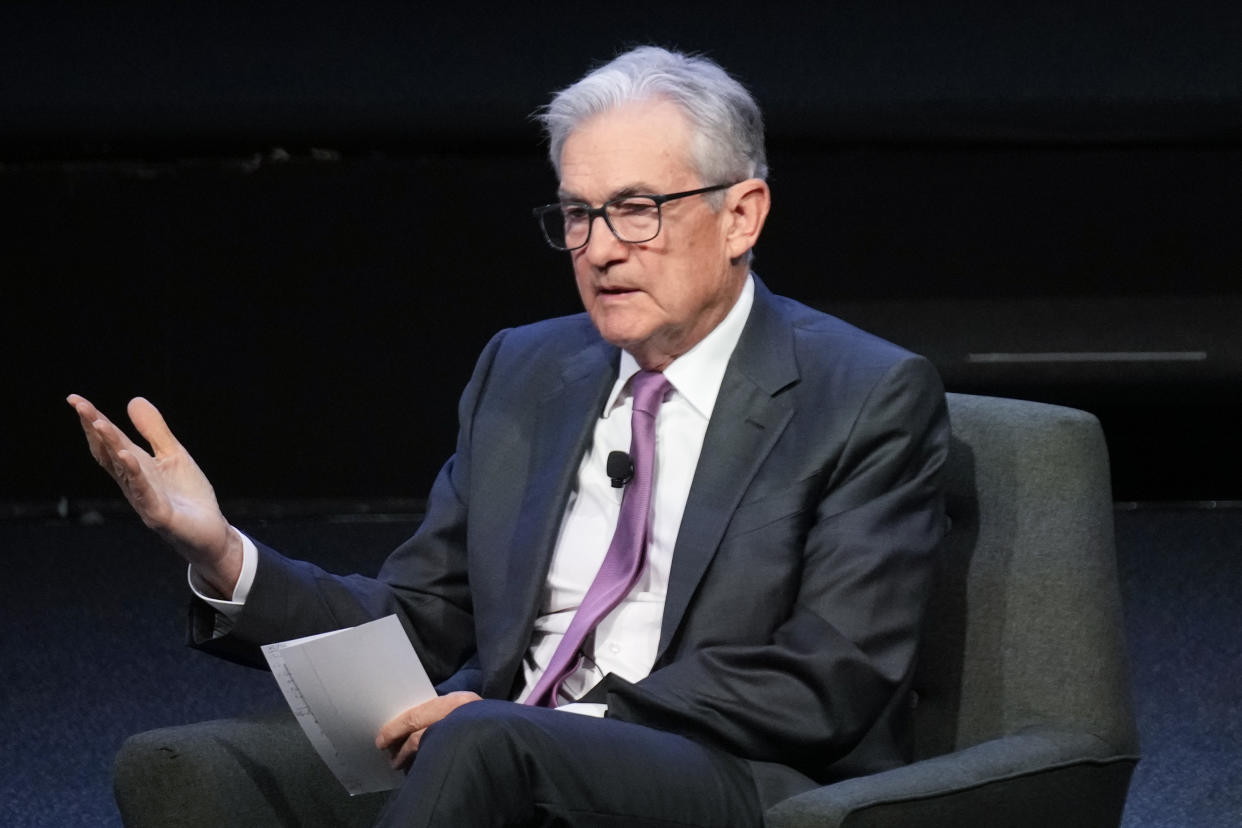Fed wants to lower 'swipe fees,' a potential blow to banks and credit card giants
The Federal Reserve Wednesday proposed lowering the fees banks can charge retailers for processing debit-card transactions, a victory for merchants who have long complained these "swipe fees" were too high and harmed consumers.
The move announced Wednesday is a potential blow to big banks that issue credit cards as well as giant credit-card companies Visa (V), Mastercard (MA), and American Express (AXP), which would take in less revenue if these fees go down.
These charges — also known as interchange fees — are paid by retailers, supermarkets, convenience stores, gasoline stations, and online merchants when consumers shop with their debit cards. Banks that issue the cards pocket the revenue made from the fees charged to the merchants.
Read more: Credit card fees explained: 8 types you should know

The Fed gained more power over these fees in the aftermath of the 2008 financial crisis.
A section of the 2010 Dodd-Frank law called the Durbin amendment asked the Fed to cap these rates for banks with at least $10 billion in assets at a "reasonable and proportional" cost. In 2011, the regulator set the cap at $0.21 plus 0.05% of the transaction amount.
The central bank can lower the cap if it finds that the costs of processing payments decline but hasn’t done so until now. The Fed is proposing cutting the cap to $0.144 plus 0.04% of the transaction amount. The Fed would increase the so-called fraud-prevention adjustment to $0.013 from $0.01.
Today the average debit card transaction is $50. The new proposed cap would total $0.177 on the average $50 transaction, down from $0.245 on the same transaction today.
Read more: 5 ways to dodge the $130 billion in fees and interest credit card companies rake in
Fed governor Michelle Bowman objected to the proposal, noting that consumers won’t realize the savings while banks will see higher costs.

"While the proposal suggests that it could result in benefits to consumers, I am concerned that the costs for consumers — through the form of increased costs for banking products and services — will be real, while the benefits to consumers — such as lower prices at merchants — may not be realized," Bowman said in a statement.
The plan is the latest in a series of new rules the Fed and other banking regulators have proposed or finalized in recent months that will affect how financial institutions operate, ranging from how much capital banks should hold to how they calculate climate risks to new evaluations of how banks lend to low-income communities.
Read more: How does the Fed affect your credit card interest rate?
Some of these new rules have faced pushback from banks, especially the proposal that would force banks with more than $100 billion in assets to hold greater buffers in case of future losses. They argue they already have adequate capital and that the new requirements would curb lending and hurt the economy.
Several bank trade groups sent a letter to the Fed, the FDIC, and the OCC asking them to "re-propose" the rule, arguing that the initial proposal "relies on data and analyses that the agencies have not made available to the public." On Friday the Fed agreed to extend the comment period to Jan. 16, 2024 from Nov. 30 of this year.
Banks are also gearing up for a fight on swipe fees. Last week, nine major banking trade groups, including the American Bankers Association, sent Fed Chair Jay Powell a letter warning the central bank not to propose cutting the rates, setting the stage for the industry to challenge in court any final rule.
Today’s proposal suggests a 90-day comment period and that any final rule would become effective "at least 60 days" after the final rule is published in the Federal Register.
The Fed envisions a periodic updating of the fee cap every two years where data would be collected in odd-numbered years by March 31, which would then go into effect July 1.
But it's not a foregone conclusion that the cap would continue to drop every two years, according to Fed officials. The cap level would depend on what happens to costs. Updates would try to capture changes in costs and keep the fees reasonable and proportional to the issuer's costs.

Merchants have long argued that the Fed set interchange rates higher than what is "reasonable and proportional." They sued, but a federal appeals court sided with the Fed.
Despite the loss, retailers have continued to argue that the existing rates produce revenue to the card-issuing banks that significantly exceed the reasonable and proportional requirement in the law. The Supreme Court agreed last month to hear a case that would force the Fed to lower the swipe fees.
The banks argue any revamp needs to capture fraud and operational costs that the current regime excludes. They also say the Fed's most recent public assessment is based on 2019 data and does not justify any pricing changes.
Bowman, in her statement of objection to the new proposal, noted that larger issuers with the highest transaction volumes will have an advantage over smaller issuers.
She also said she worries that lowering interchange fees along with higher proposed capital requirements could pose risks to the health of certain banks and the overall US banking system.
Click here for in-depth analysis of the latest stock market news and events moving stock prices.
Read the latest financial and business news from Yahoo Finance
